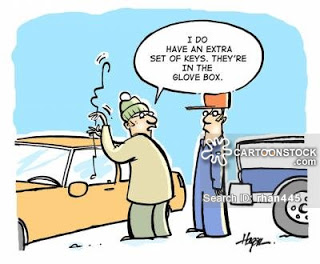Locked out By Thomas PalleyThis paper explores lock-in and lock-out via economic policy. It argues policy decisions may near-irrevocably change the economy’s structure, thereby changing its performance. That causes changed economic outcomes concerning distribution of wealth, income and power, which in turn induces locked-in changes in political outcomes. That is a different way of thinking about policy compared to conventional macroeconomic stabilization theory. The latter treats policy as a dial which is dialed up or down, depending on the economy’s state. Lock-in policy is illustrated by the euro, globalization, and the neoliberal policy experiment.Read paper here.
Topics:
Matias Vernengo considers the following as important:
This could be interesting, too:
Robert Vienneau writes Austrian Capital Theory And Triple-Switching In The Corn-Tractor Model
Mike Norman writes The Accursed Tariffs — NeilW
Mike Norman writes IRS has agreed to share migrants’ tax information with ICE
Mike Norman writes Trump’s “Liberation Day”: Another PR Gag, or Global Reorientation Turning Point? — Simplicius
By Thomas Palley
This paper explores lock-in and lock-out via economic policy. It argues policy decisions may near-irrevocably change the economy’s structure, thereby changing its performance. That causes changed economic outcomes concerning distribution of wealth, income and power, which in turn induces locked-in changes in political outcomes. That is a different way of thinking about policy compared to conventional macroeconomic stabilization theory. The latter treats policy as a dial which is dialed up or down, depending on the economy’s state. Lock-in policy is illustrated by the euro, globalization, and the neoliberal policy experiment.
Read paper here.

